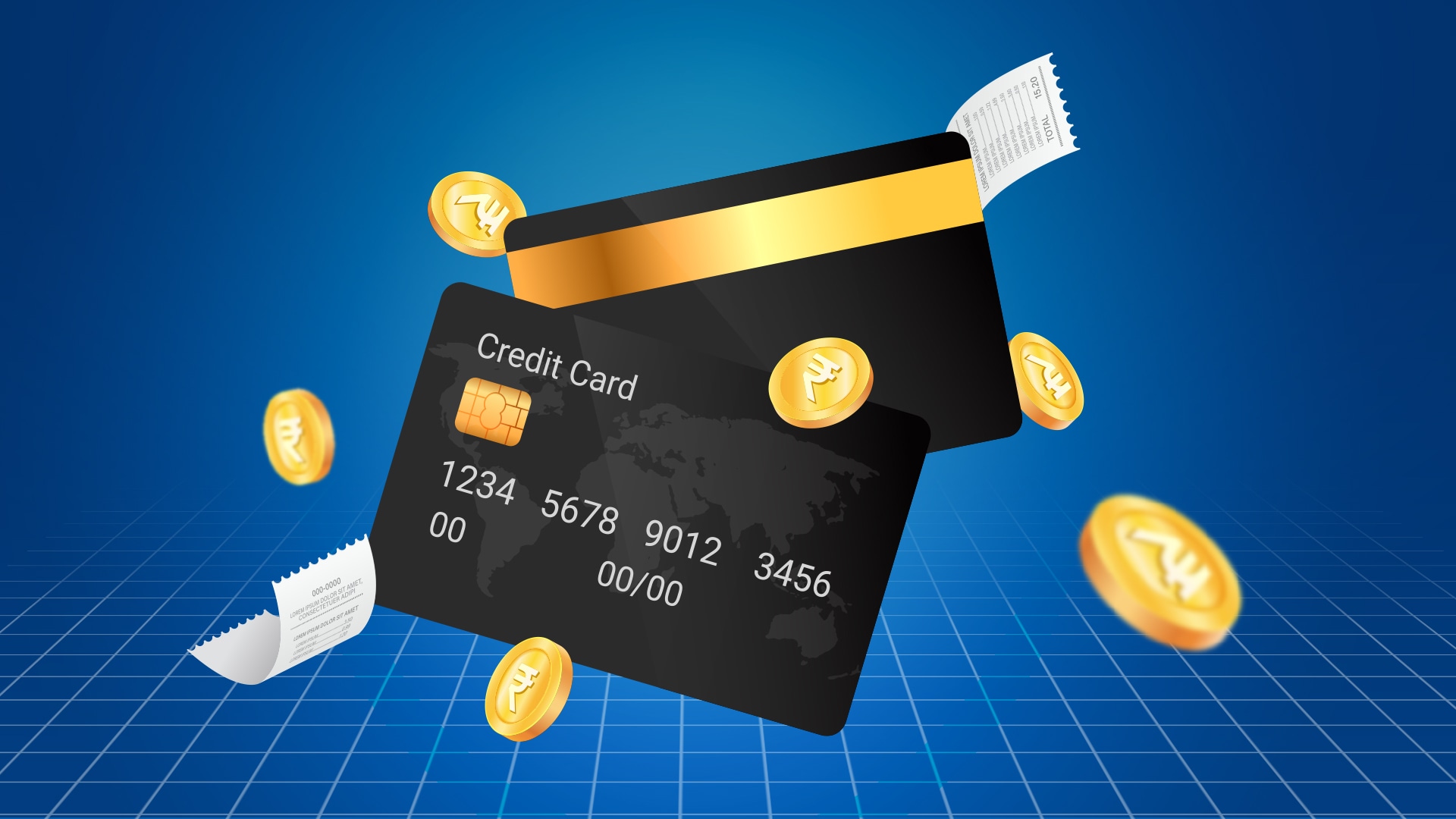There are many credit card issuers in India that offer different types of credit cards, having different sets of features. Usually, card issuers tend to classify their credit card offerings into different categories based on the features on offer.
Some of the most common credit card categories you can find include:
Rewards cards
Cashback cards
Credit-building cards
Low-interest and balance transfer cards
Furthermore, credit cards may also be classified based on the nature of rewards, such as:
Travel cards
Fuel cards
Entertainment cards
Shopping cards
Lifestyle cards
If you have made up your mind and are ready to apply for a credit card, you need to know the different types of credit cards available in the market. This will help you make a more informed decision and choose a card that proves to be most rewarding for you.
Here’s a brief overview of a few of the most common credit card types in India.
1. Travel Credit Card
You may find travel credit cards to be most rewarding if you are a frequent traveller. These cards offer the following benefits:
Some travel cards offer air miles on travel transactions made with the card
These cards also provide rewards on all spending, which can be redeemed for booking flights and hotels
You can also use these points to purchase holiday packages or fund any other travel expense
These cards also offer other travel-related perks, including complimentary access to airport lounges and travel insurance
Some of the best travel credit cards in India include:
Axis Bank Vistara Signature
2. Fuel Credit Card
Fuel credit cards offer cashback, discounts, and rewards on fuel spending. You can use this card in the following ways to maximise your rewards.
You can redeem the reward points earned from purchases made through this card for fuel at gas stations
They also offer fuel surcharge waivers to lower your fuel expenses further
Many issuers have collaborated with major fuel brands to roll out highly-lucrative offers on these cards, such as providing accelerated reward points
Some of the best fuel credit cards in India include:
- IndianOil Axis Bank credit card
3. Rewards Credit Card
A rewards credit card is a type of credit card that offers reward points on every minimum spend. The following are some of the features of rewards credit cards:
This minimum spend cap varies depending on your card issuer and the spend category
You can choose a range of benefits from a rewards catalogue for air miles, vouchers, merchandise, etc.
Some of the best rewards credit cards in India include:
Citibank Rewards credit card
4. Secured Credit Card
Secured credit cards are issued against fixed deposits. Here are some of the notable features of these types of cards:
The credit limit on these cards is determined based on your fixed deposit amount
These cards are best for those who have a poor credit history or no repayment history at all
Some of the best secured credit cards in India include:
SBI Unnati credit card
- Axis Bank Insta Easy credit card
5. Business Credit Card
A business credit card is a type of credit card offered to business owners for work-related expenses and the following benefits:
They come with a high credit limit, longer interest-free credit periods, accelerated cashback on business-related spends, etc.
These cards also help fund and manage business expenditures by closing and tracking expenses and cash flows
They also bring a host of business-related perks like a cash advance facility, hotel and travel benefits, and insurance covers
Some of the best business credit cards in India include:
SBI Platinum Corporate credit card
6. Student Credit Card
Student credit cards are beginner cards offered to college students with a limited credit history. Here are some of the features and perks card users enjoy:
Students above the age of 18 years can apply for these cards with minimum documentation
While student cards offer perks like Interest-free periods, reward points, and discounts, they also come with a limited credit limit
Student credit cards aid in making college-goers financially responsible and help them build a credit history
Some of the best student credit cards in India include:
7. Cashback Credit Card
Cashback credit cards offer a certain percentage of your spending as cashback rewards. This usually varies from 5%-20% depending on the spending category. The following are some of the features of these cards:
Cashback can be earned when you spend on bill payments, groceries, retail purchases, etc.
Some of these cards offer a flat rate for all spends, while others offer an accelerated rate for preferential categories like travel or dining
These rewards can be availed as direct cashback or as statement credits
Some of the best cashback credit cards in India are:
Flipkart Axis Bank credit card
8. Lifestyle Credit Card
These cards are packed with a range of lifestyle benefits like reward points, cashback, and discounts. Here are some notable characteristics of lifestyle credit cards:
You can earn reward points for specific categories like shopping, dining, movie tickets and travel
Some cards also offer premium benefits like golf lessons, VIP airport lounge access, concierge services, etc.
Some of the best lifestyle credit cards in India include:
Axis Bank Privilege credit card
HDFC Diners Club Black credit card
9. Entertainment Credit Card
An entertainment credit card is a type of credit card that brings rewards, offers, and discounts on entertainment-related expenses like booking movie tickets. Here are some of its features:
Some entertainment cards may be co-branded, offering merchant-specific discounts on entertainment spends, while others offer rewards across merchants
Common perks include complimentary monthly movie tickets, accelerated rewards on spends at partner dining outlets, and movie ticket welcome vouchers
Some of the best entertainment credit cards in India include:
- Kotak PVR Gold credit card
10. Shopping Credit Card
Shopping credit cards bring accelerated reward points on online and offline purchases of apparel, groceries, electronics, gadgets, etc. The following are some of its features:
Most shopping credit cards are co-branded cards that offer rewards, cashback, and discounts at partner stores and websites apart from flat rewards on other merchant spends
The best shopping credit cards offer an easy EMI conversion facility when product costs exceed a certain threshold
Some of the best shopping credit cards in India include:
Amazon Pay ICICI Bank credit card
Features of Credit Cards - Key Highlights
Instant Approval
If you have an excellent credit history, banks and other lenders will be readily willing to offer you a credit card
Credit Limit
Credit cards come with a pre-approved credit limit, which is the maximum amount you can spend using it
Rewards and Offers
Credit cards also offer a range of discounts, offers, and cashback on different types of spending, all redeemable through credit card points

FAQs on Types of Credit Card
Which is the best credit card for fuel?
IndianOil CitiBank Platinum Credit Card and IndianOil CitiBank Titanium Credit Card are among some of the best credit cards for fuel.
Which is the best credit card for online shopping?
Lifestyle credit cards such as the Axis Bank Signature Credit Card are often considered some of the best credit cards for online shopping.
Can I own two Credit Cards?
Yes. An individual can have multiple types of credit cards. However, it is advisable to disclose the details of your existing card when you apply for a second one.
Which are the credit cards that offer the best benefits on travel?
These are several cards that offer some of the best benefits when it comes to travel. You could check various bank websites and compare the benefits offered by each travel card to choose the best one for yourself.
Which Bank provides the best rewards on Credit Cards?
There are various banks that offer different rewards on different types of credit cards. It is advisable to choose the credit card reward program that best suits your financial and spending goals.
Do we have to pay GST every time we renew a credit card?
No, you do not have to pay GST on the renewal of your card. However, it depends on the bank or financial institution issuing the card. Mostly, in the case of credit cards, if you are regular with your monthly payments, the GST regime will have no impact on you.
What are EMIs on credit card purchases?
Some card-issuing banks or financial institutions offer customers the option of paying their bills in EMIs (equated monthly instalments). However, depending on the issuing bank, the EMI option will be applicable on selective purchases or the total outstanding amount.





